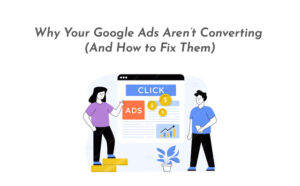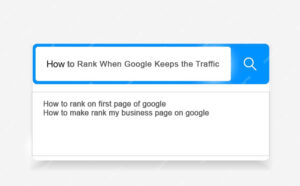Introduction:
In today’s digital age, businesses are increasingly recognizing the importance of a strong online presence. As a result, the demand for digital marketing services has soared. If you’re considering offering your expertise in this field, one of the most critical questions you’ll face is, “How much should I charge for my digital marketing services?” In this comprehensive guide, we’ll delve into the factors that influence pricing and provide you with real-world examples to help you navigate the world of digital marketing pricing strategies.
Understanding the Digital Marketing Landscape:
Digital marketing encompasses a wide range of services, from SEO and social media management to content creation and email marketing. The pricing for these services can vary significantly based on various factors:
- Experience and Expertise:
Your level of expertise plays a crucial role in determining how much you can charge. Seasoned digital marketers often command higher rates than newcomers, as their track record and skill set inspire confidence in clients.
Example: A digital marketing agency with a team of experienced professionals might charge $100-$200 per hour for their services, while a freelance marketer with limited experience might charge $50-$75 per hour.
You would like to read: Maximizing Impact: Cost-Efficient Strategies To Enhance Your Marketing Efforts
- Type of Service:
Different digital marketing services require varying levels of effort and expertise. For instance, managing pay-per-click (PPC) advertising campaigns may require more time and skill than basic social media management.
Example: A PPC specialist might charge $500-$1,000 per month per campaign, whereas a social media manager may charge $300-$500 per month for ongoing management.
- Geographic Location:
Your location can also impact your pricing strategy. Digital marketing rates tend to be higher in major cities and regions with a high cost of living.
Example: A digital marketing agency in New York City might charge higher rates than a similar agency in a smaller town.
- Client Industry:
The industry of your clients can influence your pricing. Niche markets that require specialized knowledge may justify higher rates.
Example: A digital marketing agency specializing in healthcare marketing may charge more than one serving a broader range of industries due to the specialized knowledge required.
- Package vs. Customized Services:
Some clients prefer packaged digital marketing services with set prices, while others require customized solutions. Tailoring your pricing structure to accommodate both can attract a wider range of clients.
Example: Offering predefined SEO packages with transparent pricing can appeal to smaller businesses, while larger enterprises may require custom strategies with flexible pricing.
You would like to read: The Impact Of Social Media Marketing On Brand Visibility
- Market Demand:
Keep an eye on market trends and demand for specific digital marketing services. High-demand services often command higher rates.
Example: During the holiday season, e-commerce businesses may seek email marketing campaigns, which can result in higher rates for email marketing services.
Setting Your Pricing Strategy:
Now that you understand the key factors that influence digital marketing pricing, it’s time to set your strategy. Here are some steps to help you determine how much to charge:
- Market Research:
Research your competitors and their pricing strategies. Understanding what others charge in your niche can help you position your services competitively. - Calculate Your Costs:
Determine your overhead costs, including software subscriptions, advertising expenses, and any additional tools you use. Your pricing should cover these costs and leave room for profit. - Consider Value:
Focus on the value you provide to clients. Highlight your unique selling points and how your services can benefit their businesses. - Test and Adjust:
Don’t be afraid to experiment with your pricing. Start with a pricing model and adjust it based on client feedback and market conditions.
Conclusion:
As the digital marketing industry continues to evolve, pricing your services appropriately is crucial for success. By considering factors like your expertise, the type of service, location, client industry, and market demand, you can develop a pricing strategy that reflects the true value of your digital marketing services.
Remember, there’s no one-size-fits-all approach to pricing in the digital marketing world. It’s essential to stay flexible and adapt to the changing needs of your clients and the industry.
We encourage you to engage with us in the comments section below. Share your thoughts on digital marketing pricing, ask questions, or let us know about your experiences. Together, we can continue to learn and grow in this dynamic field.










